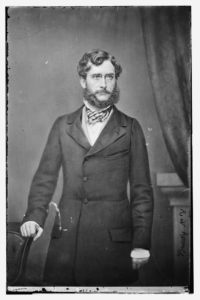
“Jack My Dear,-Where the devil are you?” John Lothrop Motley, Otto von Bismarck, and the Civil War
Historians have rarely examined the German States’ reactions to the Civil War. Much has been said about German immigrants fighting in the war, German-American political leaders involved in community and political organization, and the nativist backlash in the United States; however, Central Europe’s perspectives are a blank page in English ...
Read More
Read More
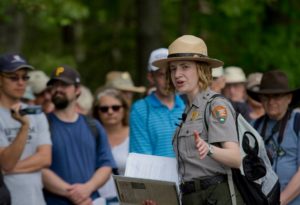
Freeman Tilden’s Interpreting Our Heritage and the Civil War Centennial
On March 30, 2019, a group of public historians will convene at the National Council on Public History’s Annual Meeting to discuss the interpreter Freeman Tilden’s 1957 publication, Interpreting Our Heritage. My fellow NPS colleague Allison Horrocks and I created this conference panel to discuss Tilden's ideas in historical context ...
Read More
Read More
Editor’s Note: March 2019 Issue
Our March 2019 issue is a special issue on veterans, with Susannah Ural serving as guest editor. Below you will find her note of introduction. To access these articles, you can purchase a copy of the issue or subscribe to the journal. It will also be available (in March) on ...
Read More
Read More
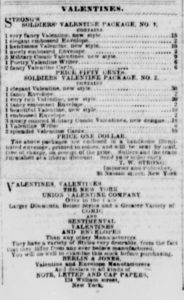
“Don’t Forget your Soldier Lovers!” A Story of Civil War Valentines
Is materialism ripping out the heart of Valentine’s Day? Every February, thousands of Americans lament the commercialism of this holiday with critical articles and tweets about modern consumerism. Some blame the pressures of social media on the rise in spending. And it is definitely rising; the National Retail Federation estimates ...
Read More
Read More
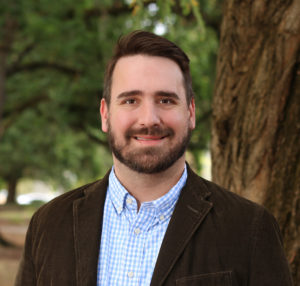
Author Interview: Timothy Williams
Our December 2018 issue featured top-notch work on the Civil War era, including a fascinating piece by Timothy Williams, titled "The Readers' South: Literature, Region, and Identity in the Civil War Era." We share below a recent interview with Dr. Williams, who is an assistant professor of history at the ...
Read More
Read More

A New Member of the Muster Team, Barton A. Myers
Due to other commitments, our field correspondent James Marten has had to step down from his role at Muster. We will miss seeing his regular posts, but we wish him well in his future endeavors. In his stead, we are pleased to announce a new member of our Muster team, ...
Read More
Read More
What Academics Owe Activists: A Report on “Removing Silent Sam” at the AHA
As monuments to (and of) white supremacy, Confederate statues simultaneously re-embodied masculinity in white Southerners who failed their patriarchal society, christened future generations in Lost Cause mythology, and intimidated, punished, and policed the bodies of black Southerners.[1] It was no mistake that Confederate memorialization crested during two periods of intense ...
Read More
Read More
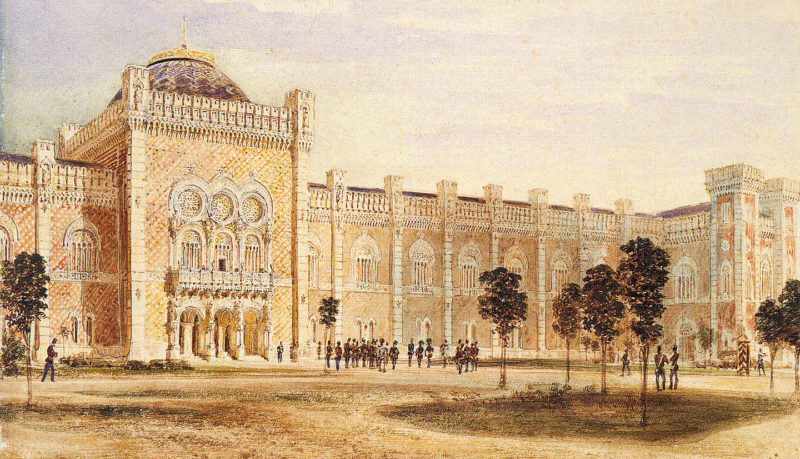
Lessons from the Crimean War: The Augusta Arsenal
In 1853 a conflict began that, for the first time since the end of the Napoleonic Wars in 1815, pitted most of the great powers of Europe against each other. What initially started as a conflict between the Russian and Ottoman empires quickly escalated to involve the western European maritime ...
Read More
Read More
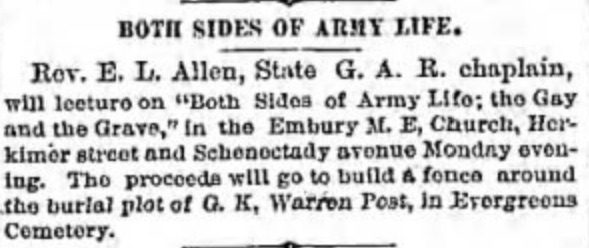
The Grave and the Gay: The Civil War on the Gilded Age Lecture Circuit
This is our final field dispatch from correspondent James Marten. We have greatly enjoyed his contributions to Muster and it has been such a pleasure having him on our team. We will be announcing his replacement in 2019, so stay tuned! For decades before and after the Civil War, thousands ...
Read More
Read More
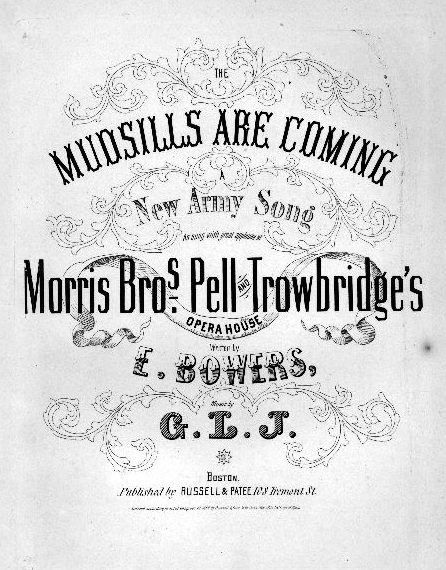
Mudsills vs. Chivalry
Writing home from Alabama in November 1863, an Ohio cavalryman celebrated the overthrow of the Southern aristocracy: “The mud sills of the North roam at will over the plantations, burn rails, forage on the country, and the negroes flock into our camps, leaving their lordly masters helpless and dependent,” he ...
Read More
Read More
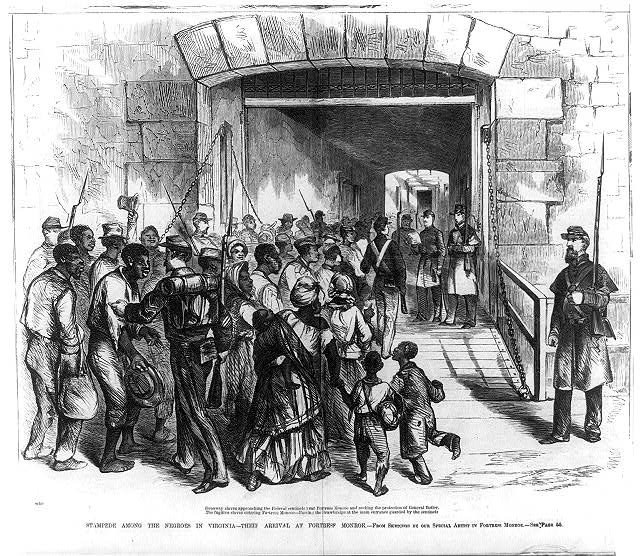
The Electoral Politics of “Migrant Caravans”
Images of the “migrant caravans” heading north from Honduras, through Guatemala and Mexico and toward the United States, are now familiar to us all. There have been other “migrant caravans” from Central America in the past, but none have registered in American media and politics quite like the one that ...
Read More
Read More
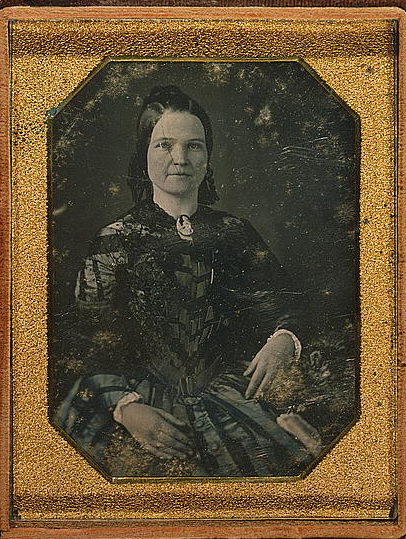
1818-2018, The Mary Lincoln Bicentennial: Sisterhood and the Civil War
Just over two hundred years ago today, on December 13, 1818, Mary Ann Todd came into the world screaming. Or at least, we assume she came into this world screaming, as most babies do. It was a rainy Sunday in Lexington, Kentucky. Mary’s mother Eliza likely sent for the midwife ...
Read More
Read More
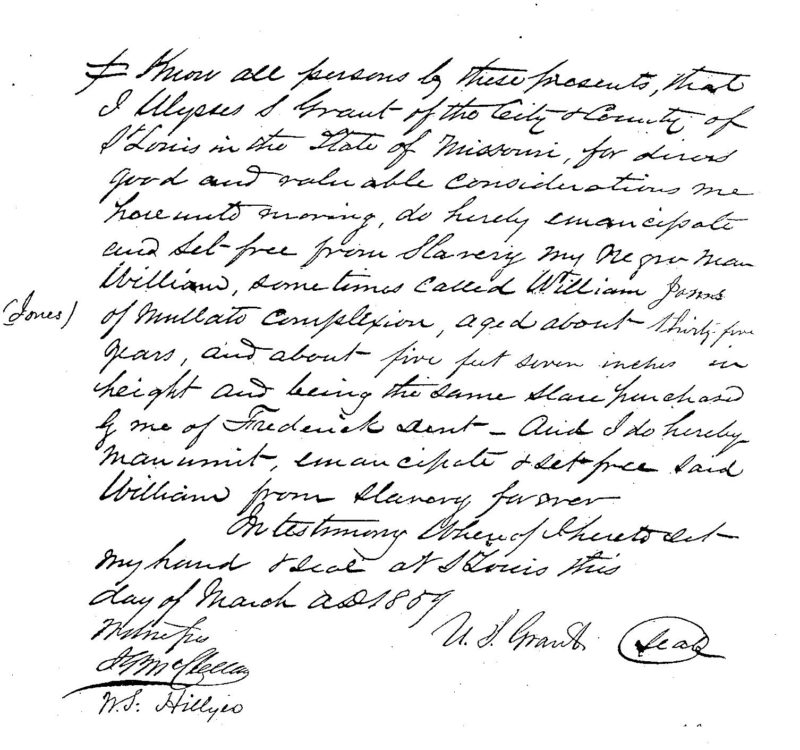
The Mystery of William Jones, An Enslaved Man Owned by Ulysses S. Grant
On March 29, 1859, Ulysses S. Grant went to the St. Louis Courthouse to attend to a pressing legal matter. That day Grant signed a manumission paper freeing William Jones, an enslaved African American man that he had previously acquired from his father-in-law, "Colonel" Frederick F. Dent. Described as being ...
Read More
Read More
Editor’s Note: December 2018 Issue
We are pleased to present the editor's note for our December 2018 issue, chock full of fascinating articles. To subscribe, please visit our subscriptions page. This issue features essays on the political and social contexts of the sectional crisis, looking carefully at what Americans read and how they voted—and for ...
Read More
Read More
Shaping Public Remembrances of Abolition and Emancipation: Memory in the Post-Emancipation Era at the 2018 SHA
Today we share the last of our conference reports on the November 2018 annual meeting of the Southern Historical Association, held in Birmingham. Thank you for following along with us as these four reporters shared details about these fascinating and thought-provoking panels. When one attempts to explain to non-historians that ...
Read More
Read More
Defining Defeat and Redefining the Lost Cause: An SHA Panel Recap
Today, the Lost Cause is rarely far from historians’ minds. Headlines of Confederate monuments coming down compete for space with stories of southern lawmakers proposing monuments to black Confederates. States are finally rewriting their curriculum to address slavery’s central role in the causation of the Civil War, while reality TV ...
Read More
Read More